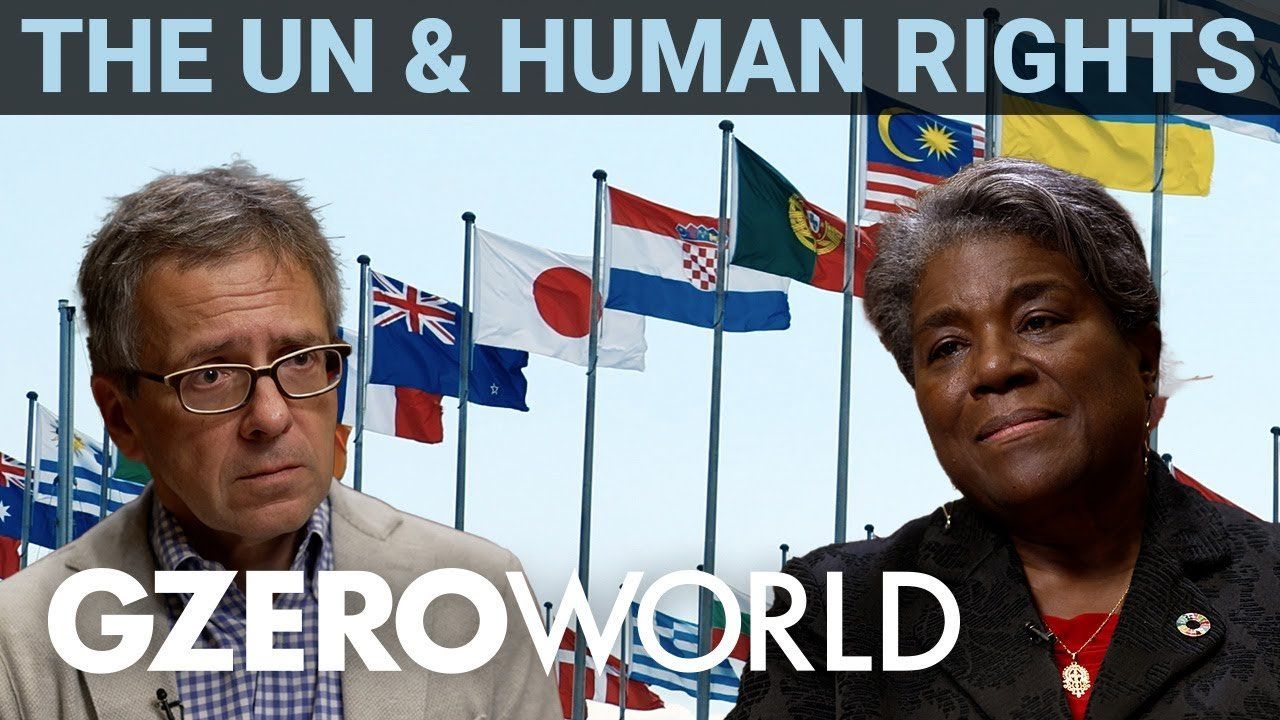GZERO World Clips
Can the US be a global leader on human rights?

Can the US be a global leader on human rights? | UN Ambassador Linda Thomas-Greenfield | GZERO World

Is it difficult to be a global leader on human rights when the US is facing such a challenging and divisive political environment?
GZERO World sat down with US Ambassador to the United Nations Linda Thomas-Greenfield at UN headquarters in New York ahead of the US taking over presidency of the Security Council for the month of August.
Ian Bremmer asked the ambassador about her priorities during the presidency, as well as how domestic issues in the United States impact her job as an international diplomat. Is it difficult to be a global leader on human rights when the US is facing such a challenging and divisive political environment?
“If we’re not talking about human rights around the world, no one else will,” Thomas-Greenfield said in an interview from the floor of the Security Council chamber, “I know that others appreciate that they can depend on the United States to be the voice of the people.”
While acknowledging the US is not perfect, Thomas-Greenfield says that when the US wasn’t sitting on the Human Rights Council during the previous administration, “people missed us, they needed us.” That gives her a clear path to make sure America’s voice is heard on things like human rights and humanitarian assistance.
“The United Nations is an important part of our history,” Thomas-Greenfield emphasized, “But it’s also an important part of our futures.”
In this Quick Take, Ian Bremmer reacts to President Trump’s State of the Union address, calling it “a rehashing of the greatest hits” with little new policy direction.
Small business hiring surged 7% above the 2024 average in December, led by a surprise rally in retail. But with uncertainty still historically high and mounting concerns over tariffs, can this momentum survive 2026? Explore the data behind the resilience of the US small business sector. Get the latest economic insights from Bank of America Institute.